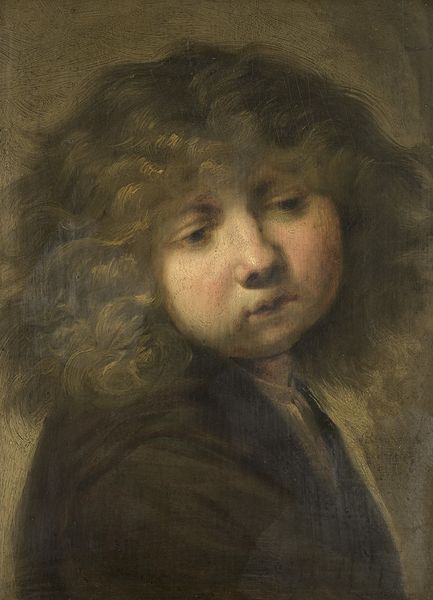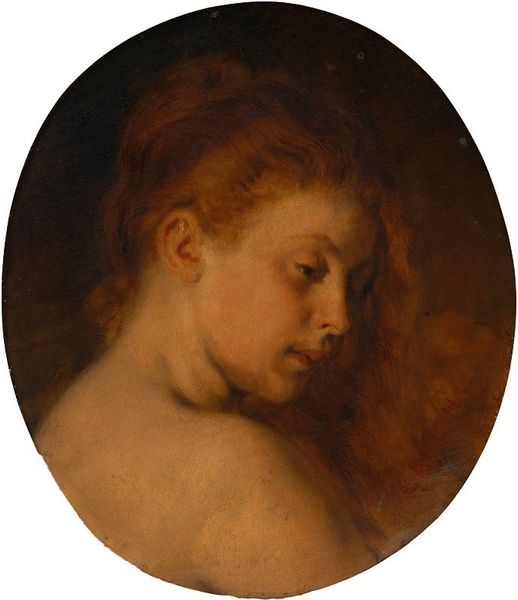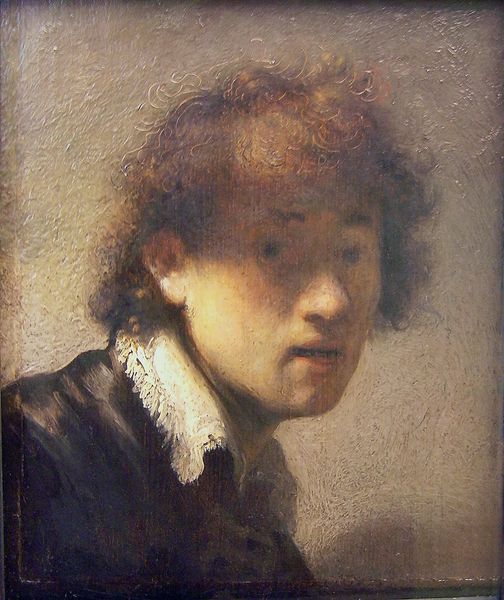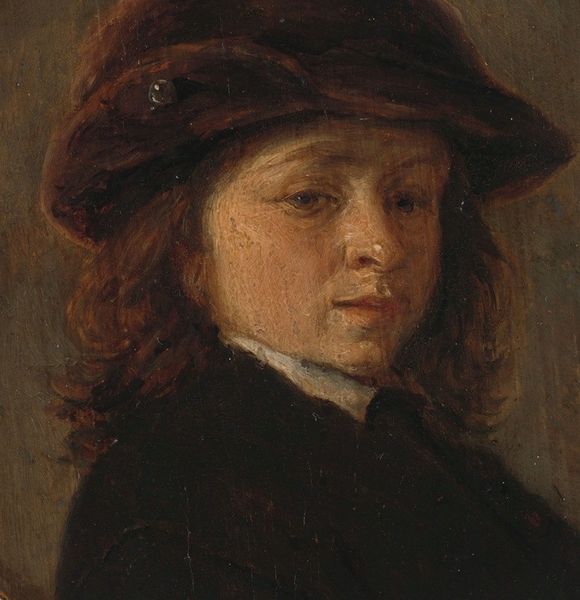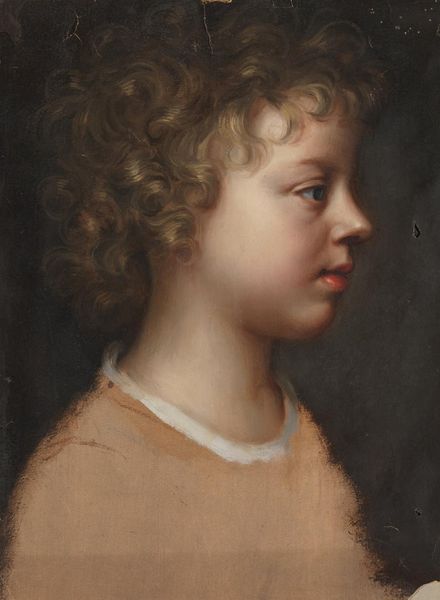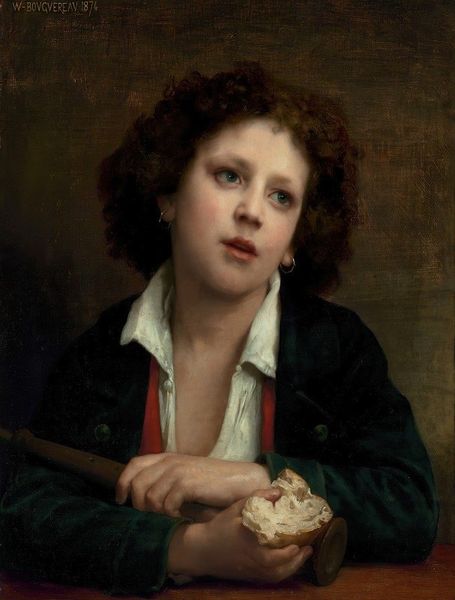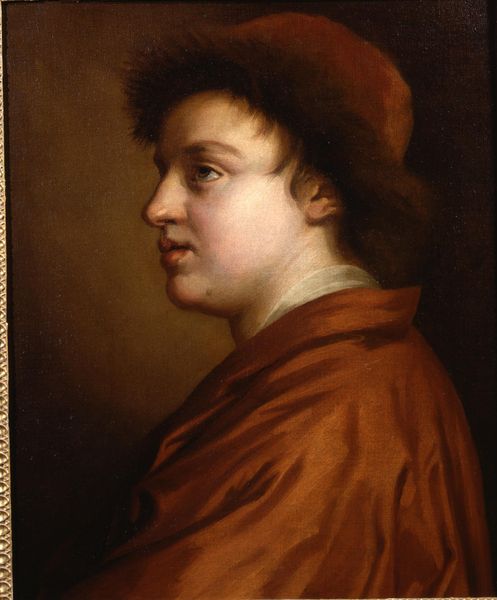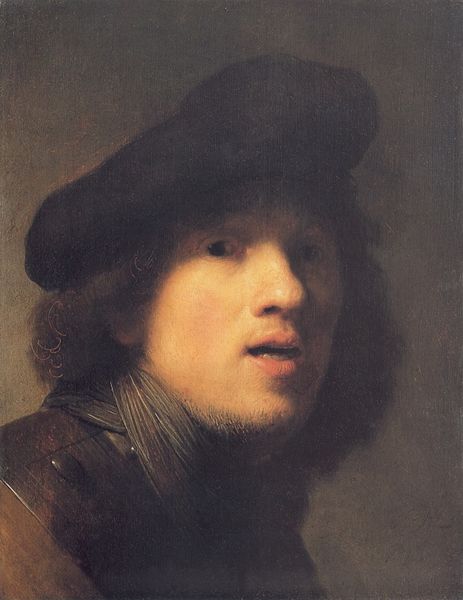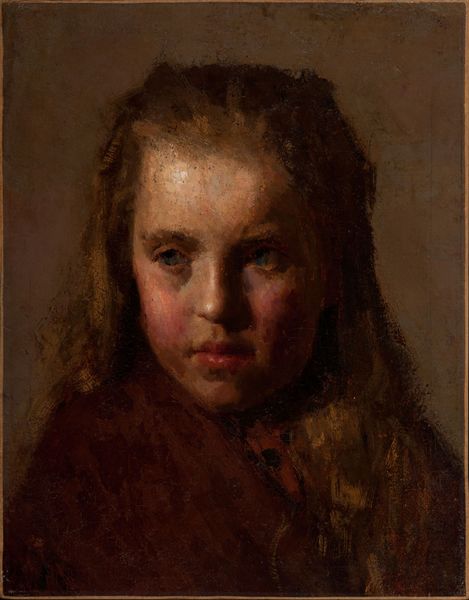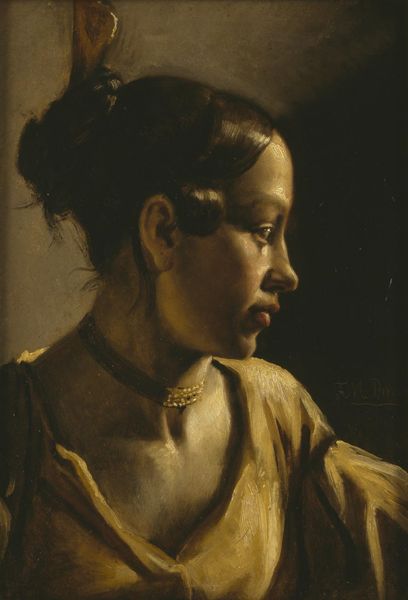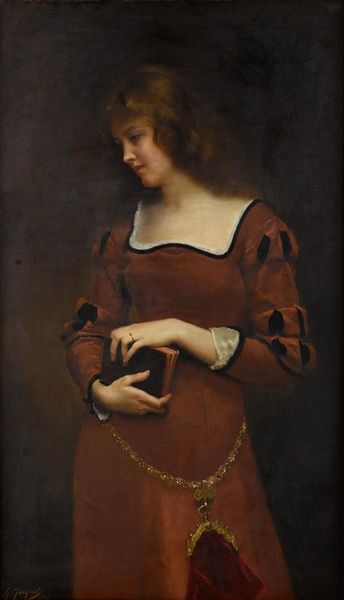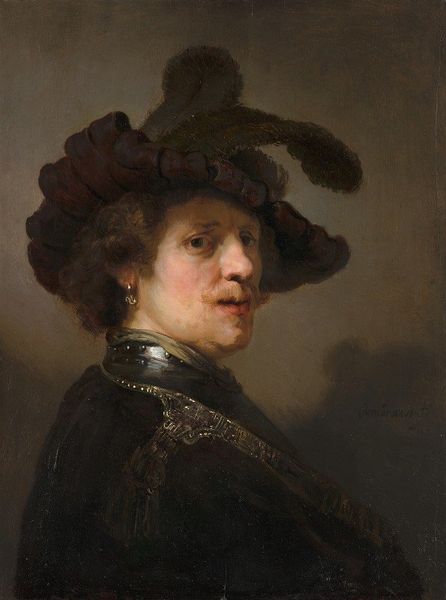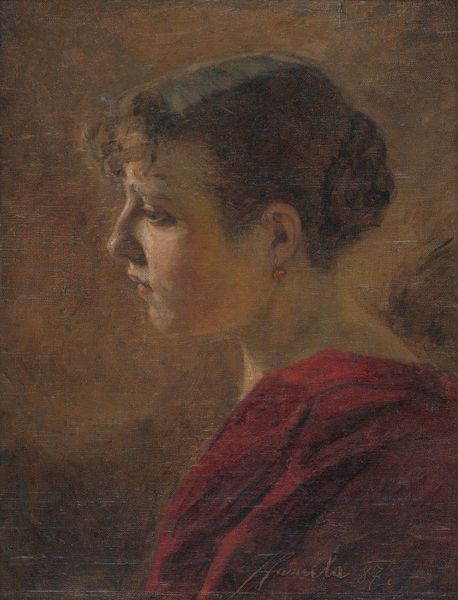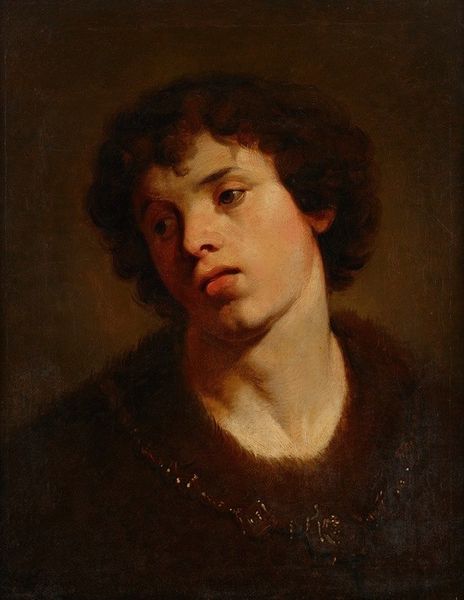
painting, oil-paint
#
portrait
#
figurative
#
self-portrait
#
baroque
#
dutch-golden-age
#
painting
#
oil-paint
#
charcoal drawing
#
figuration
#
chiaroscuro
Copyright: Public Domain: Artvee
This self-portrait was painted by Rembrandt van Rijn, and it immediately strikes us with its dramatic use of light and shadow. The artist's face is partially obscured, with a strong contrast between the illuminated and darkened areas, creating a sense of mystery. Rembrandt's use of chiaroscuro—the interplay of light and dark—functions here as more than just a technique; it’s a statement. By obscuring part of his face, Rembrandt invites us to consider the nature of identity and representation. Is the self fully knowable, or are there always hidden aspects? The rough brushwork adds to the sense of immediacy and authenticity, a hallmark of Rembrandt's style. Consider how this use of light and shadow destabilizes fixed notions of the self, suggesting that identity is not a static concept but something fluid and ever-changing. This self-portrait serves not just as a depiction of a person but as an exploration of being, representation, and the very act of seeing.
Comments
No comments
Be the first to comment and join the conversation on the ultimate creative platform.
